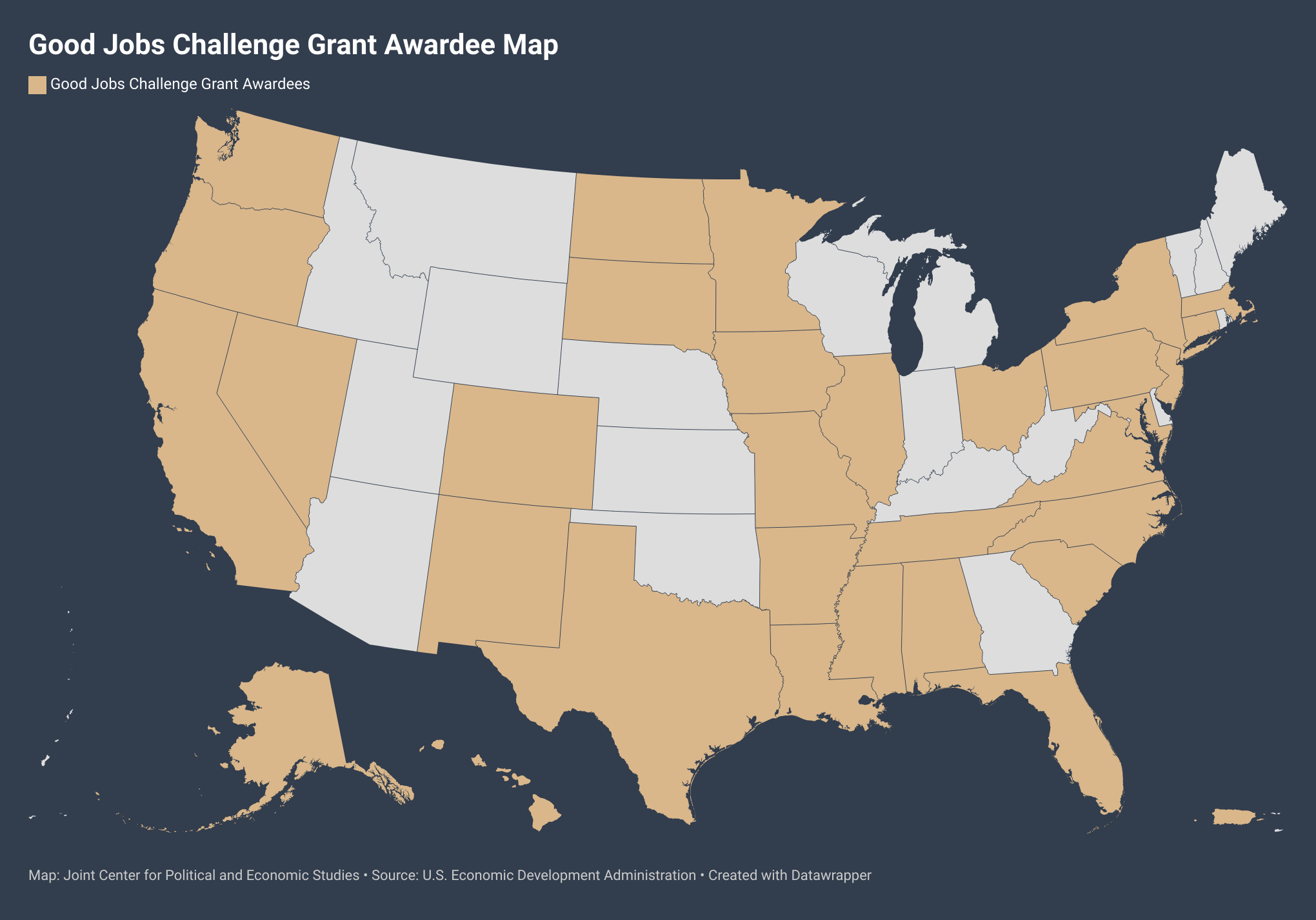Workforce Policy

Joint Center Releases Good Jobs Challenge Recommendations for Black Workers
FOR IMMEDIATE RELEASE
Jan. 25, 2024
Contact: Chandra Hayslett, chandra@jointcenter.org
Joint Center Releases Good Jobs Challenge Recommendations for Black Workers
WASHINGTON — Today, the Joint Center for Political and Economic Studies released Good Jobs Challenge recommendations to the U.S. Economic Development Administration (EDA). These recommendations provide insight into how the Good Jobs Challenge can benefit Black workers and create critical opportunities to increase Black employment.
Created in March 2021, the Good Jobs Challenge recently entered its award performance phase, with grants distributed to 32 industry-led workforce training partnerships in 31 states and Puerto Rico. The initiative focuses on 15 industries such as healthcare, information technology, manufacturing, and energy. To ensure the initiative benefits Black workers, the Joint Center advocates for four pivotal strategies: implementing robust data collection, enforcing accountability measures, fostering intragovernmental partnerships, and monitoring occupational segregation.

Toplines of the recommendations are:
1). Implement Robust Data Collection
To leverage the power of the workforce system, employers, colleges, organizations, and governments participating in the challenge must collect robust data during program implementation to capture employment progress and outcomes. This includes collecting participant-level outcomes data disaggregated by race, socioeconomic status, industry, housing status, transportation access, and job retention. Comprehensive data collection methods support Black workers’ placement in training opportunities that advance their career goals, promote job quality and economic mobility, and reveal which programs retain and effectively serve Black participants.
2). Create and Enforce Accountability Measures
The EDA must hold Good Jobs Challenge grant recipients accountable for recruiting, training, and placing Black workers in high-quality jobs — jobs that “exceed the local prevailing wage for an industry in the region, include basic benefits (e.g., paid leave, health insurance, retirement/savings plan) and/or are unionized, and help the employee develop the skills and experiences necessary to advance along a career path,” according to the EDA.
3). Promote Intragovernmental Partnerships
To enhance effectiveness, training systems must coordinate with federal public assistance programs. The workforce system can alleviate hardship for people receiving public assistance by providing employment opportunities for economic mobility. Because Black families are disproportionately represented in assistance — having a recipiency rate of 32.7 percent compared to 14 percent of white families — each regional workforce training system should partner with the government representatives of public assistance programs to refer recipients to high-quality workforce training programs.
4). Monitor Occupational Segregation
Finally, the EDA must monitor occupational segregation for Black workers. Occupational segregation happens when workers of a demographic are overrepresented or underrepresented in a particular job. Racialized discrimination, biases, and social networks play a role in training and hiring, which blocks Black workers from specific positions. Among the sectors prioritized in the Good Jobs Challenge, Black workers are underrepresented in high-paying fields, such as information technology and financial services, but overrepresented in lower-paying healthcare support positions.
Click here to read the full recommendations.
The Joint Center for Political and Economic Studies, America’s Black think tank, provides compelling and actionable policy solutions to eradicate persistent and evolving barriers to the full freedom of Black people in America. We are the trusted forum for leading experts and scholars to participate in major public policy debates and promote ideas that advance Black communities. We use evidence-based research, analysis, convenings, and strategic communications to support Black communities and a network of allies.

